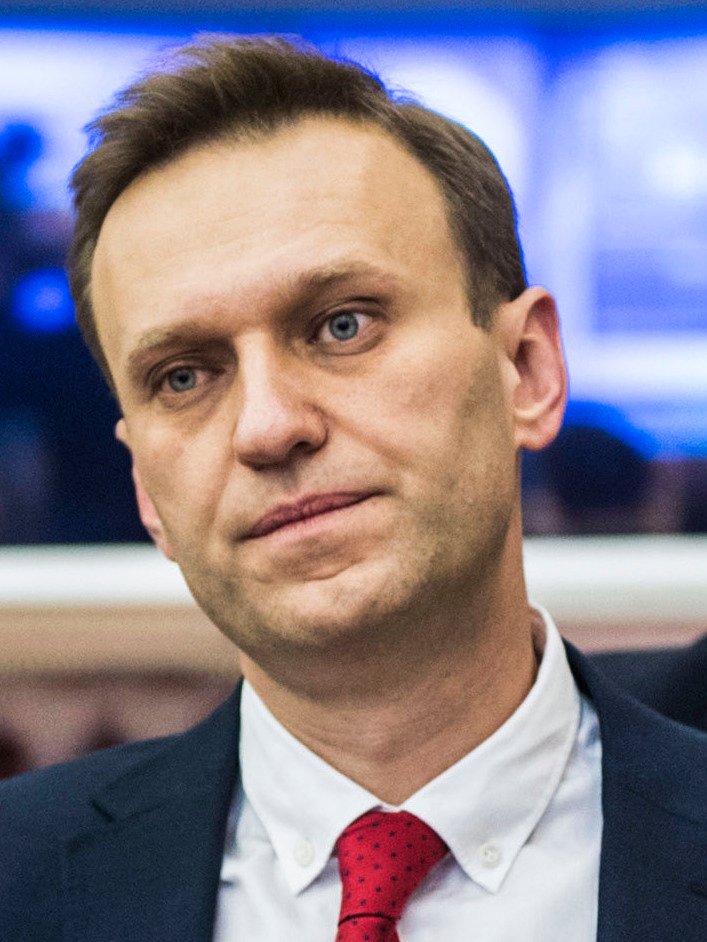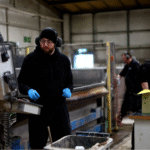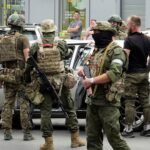Alexei Navalny emerged in the 2000s as an energetic crusader against corruption in Russia. A former lawyer and online blogger, he founded the Anti-Corruption Foundation (FBK) and used social media and investigative videos to expose graft among officials.
Over the years he became a pariah to the Kremlin, persistently calling out the growing wealth of elites around President Vladimir Putin.
Navalny famously vowed to “turn this scoundrel into political fertilizer” – referring to Putin – as he amassed millions of online followers. By 2017, he was leading anti-corruption rallies nationwide, and his early campaigns, like the RosPil and RosYam projects, documented misuse of public funds.
The “Putin’s Palace” Exposé By Alexei Navalny
Alexei Navalny’s most explosive investigation came in January 2021 with a video claiming Putin secretly owned a $1.37 billion Black Sea palace.
His team detailed the “largest bribe in history”, alleging a lavish 18,000 m² estate stocked with gold-plated fixtures, a private casino, vineyard and ice hockey rink – all secured behind a no-fly zone and private border guards.
The film went viral (47 million views in 10 days), despite Kremlin denials and retaliation. In early 2021, authorities shut down Navalny’s foundation as “extremist” and seized his Moscow apartment, effectively crippling his organization.

Photo: The sprawling “Putin Palace” on the Black Sea, as described by Navalny in early 2021.
Navalny’s exposé enraged the Kremlin. Its spokesman Dmitry Peskov dismissed the claims as “nonsense” and accused Navalny of seeking Western funds with the video.
But the meticulous detail of the investigation underscored Navalny’s role in holding Russia’s ruling class accountable. His work had earlier revealed corruption in state companies like Gazprom, Rosneft and Surgutneftegaz, fueling Putin’s ire and drawing threats of criminal charges.
The Novichok Poisoning and International Outcry
Navalny’s bold challenges made him a target. On August 20, 2020, he fell gravely ill on a flight from Tomsk to Moscow. German laboratories later confirmed he was poisoned with Novichok, a Soviet-era nerve agent. Germany’s Chancellor Angela Merkel declared without doubt that Navalny was the victim of “attempted murder”, saying the evidence of Novichok poisoning was unequivocal. (The Kremlin denies involvement.)
International leaders swiftly condemned the attack. From the EU to the US, officials demanded accountability, intensifying sanctions on Russia. Navalny was evacuated in a coma to Berlin’s Charité Hospital, beginning a long recovery. Doctors cautioned that his recuperation would be “lengthy and incomplete” given the severity of Novichok effects.
Return and Arrest: Challenging the Kremlin’s Power
Fresh from treatment, Navalny stunned the world by flying back to Moscow in January 2021. “I don’t want to give up my country or my beliefs,” he wrote from his prison cell later.
He believed Russia needed him and that “if your beliefs are worth something, you must be willing to stand up for them”.
On Jan 17, 2021, as soon as his plane landed at Sheremetyevo Airport, masked officers took him away. They held him under the pretext that he had violated a suspended 2014 sentence (for alleged embezzlement) by flying to Germany. The Moscow City Court swiftly converted that sentence into 2½ years behind bars.
Navalny’s detention triggered immediate backlash. His supporters held one of Russia’s largest street protests in years, despite severe police repression. Western governments condemned the arrest; EU foreign policy chief Josep Borrell said it would only strengthen their resolve to punish those responsible.
Russia’s prison service (FSIN) had already announced it would do “everything to arrest him” upon return. When sentenced on Feb 2, 2021, Navalny’s allies rallied thousands to central Moscow chanting, “Putin is a thief”. Ultimately, counting credit for time already served, Navalny began serving about 2½ years in a Moscow jail.
Prison Conditions and Hunger Strikes
Behind bars, Navalny’s health deteriorated. After arriving in court on the poisoning charges, he was taken to the notorious Matrosskaya Tishina prison in Moscow, later transferred to the IK-2 penal colony in Pokrov.
Conditions were harsh. In a written protest letter, he said the camp felt like a “friendly concentration camp” under Stalinist discipline. He complained guards performed hourly night checks, effectively torturing him with sleep deprivation:
“I’m being woken up eight times every night”.
He also said authorities denied him prescribed medications and legal medical visits, claiming indifference to his worsening back and leg pains.
Navalny’s plight drew international concern. In March 2021 he launched a hunger strike, demanding an independent doctor examine his condition. His supporter Leonid Volkov called this a moral call to action. Thousands of Russians rallied (again facing arrest) to pressure the authorities.
Kremlin ally Putin downplayed the strike, but EU leaders Merkel and Macron privately raised Navalny’s health with Putin during a video call. Even so, Russian officials initially said Navalny’s condition was “stable” and offered minimal care.
By mid-May, after 40 days of protest, prison authorities agreed to improve his treatment, at which point Navalny ended the striker. A Russian prison service official later said Navalny had “more or less” recovered his health, a claim his aides disputed, noting that he still faced pain and restrictions.
The “Polar Wolf” and Isolation
In late 2021, after completing his sentence, Navalny was not released. Instead he was immediately moved to a maximum-security “special regime” colony. By December 2021 he arrived at IK-3 “Polar Wolf” in Kharp, Yamal-Nenets, deep above the Arctic Circle.
Analysts say Polar Wolf is built for the hardest prisoners. It is one of Russia’s most remote camps, formerly part of Stalin’s Gulag system.
Guards have prisoners perform grueling drills in subzero cold, breaking inmates “physically and mentally”. Communications are cut off: letters to Polar Wolf often never reach families.
At Polar Wolf, Navalny endured strict isolation. Lawyers were barred from visiting, and even the small privileges of his earlier imprisonment disappeared. In March 2023 he again launched a brief hunger strike to demand basic health care. Prison officials predictably ignored his appeal.
By summer 2023, out of reach of even the limited oversight of the European Court of Human Rights, authorities intensified punishment. They placed him under cumulative disciplinary cell confinement for at least 20 separate terms since 2021.
In September 2023, the prison announced Navalny had been given the maximum one-year punishment in a single block. Over these years, Navalny was repeatedly denied COVID vaccines, subjected to humiliations and threats, and kept off international vaccines and aid.
“Extremism” Trial and 19-Year Sentence
Throughout, Russian prosecutors built a new case: accusing Navalny of “extremist” activities. In summer 2023 he and his network of regional political teams were formally labeled extremist and torn apart. In July, a closed courtroom in Moscow sentenced Navalny in absentia to 19 years in a high-security prison on fabricated charges of leading an extremist organization.
The verdict was handed down on August 4, 2023. Navalny, already serving 11½ years from earlier fraud convictions, saw his total sentence jump toward 30 years. At the hearing he appeared only via video feed in chains; the judge declared that all evidence (the testimony of witnesses, prosecutors’ claims) was admissible despite Navalny’s absence.
His supporters decried the trial. Navalny had predicted the outcome, calling it a “Stalinist” sentence. The European Court of Human Rights earlier ruled that the 2014 embezzlement case used against him was unlawful, but Russian courts ignored that.
Western diplomats said his new trial flouted due process. Meanwhile, colleagues from his anti-corruption network were also imprisoned. In mid-2023, his former campaign aides Lilia Chanysheva and Rustem Mulyukov received prison terms of 7½ and 2½ years respectively, and others like Ivan Zhdanov have been jailed or forced into exile for their association with Navalny.
Even Navalny’s lawyers were targeted: in late 2023 three of his attorneys were arrested for merely communicating with him, under the pretext of staying in contact with an “extremist”.
Reported Death and Global Response
In February 2024, alarming news rippled across social media and news wires: Russian authorities announced Navalny had died in IK-3. The official statement claimed he fell ill suddenly on the evening of Feb 15 and was pronounced dead after failing to recover.
Details were sparse and deeply contested. His family and supporters immediately cried foul. “Those who gave the order for Alexey’s death … will not go unpunished,” wrote his widow, Yulia Navalnaya, expressing her disbelief on social media. His mother Lyudmila said she had visited Alexei just days earlier on Feb 12 and found him alive and “in good form”. Allies noted that Moscow had denied family visits in recent months, fueling suspicion.
International outcry was swift and unified. Western governments pointed fingers at the Kremlin. U.S. President Biden called Navalny’s death “outrageous” and demanded answers; he and British Prime Minister Sunak warned the Kremlin that those responsible would face consequences.
European Union foreign ministers announced sanctions on individuals deemed complicit in what they described as Navalny’s “murder”. NATO, G7 and the UN also condemned the news. U.S. Secretary of State Blinken said Navalny’s death in custody “underscores the weakness of the regime”. UN Secretary-General Guterres said he was “shocked” and demanded an independent investigation.
In many European capitals, the Russian embassies and consulates were picketed with images of Navalny’s face. His grave at Moscow’s Borisovskoye cemetery quickly became a small shrine: friends and strangers laid flowers and painted makeshift memorials, even as security forces rushed to cover his portrait with a velvet panel.
Meanwhile, the Russian state line insisted Navalny died of natural causes in medical care. The Interior Ministry claimed he “suffered a cardiac event,” with no suggestion of foul play. Foreign ministries, however, reacted as though murder had occurred.
German Foreign Minister Annalena Baerbock said Navalny’s death showed “what Putin is afraid of”, and echoed that the responsibility lay at the top. Czech Foreign Minister Lipavský pointed out that Navalny’s fate mirrored other Putin critics like Boris Nemtsov: imprisoned, tortured, and ultimately killed.
Ukrainian President Zelenskyy wrote, “It is obvious he was killed by Putin”, and pledged to honor Navalny as a hero. Australian Foreign Minister Penny Wong called him a “heroic opposition leader” who “inspired the world”, and held the Russian state “solely responsible.”
Meanwhile, human rights monitors noted the larger pattern. The Organization for Security and Co-operation in Europe (OSCE) said Navalny’s life and death symbolize Russia’s refusal to tolerate dissent.
U.S. Ambassador to the OSCE Michael Carpenter (speaking for the NATO members) delivered remarks noting that “there is no doubt that responsibility for [Navalny’s] death lies with the Kremlin”.
He highlighted that Navalny “never stopped fighting” and called his imprisonment and alleged murder a final step in an ongoing campaign to crush Russia’s democratic opposition.
A Nation of Prisoners and Protesters
Navalny’s case is only one example in a broader crackdown. Since 2022, Russia’s justice system has been weaponized against protest and free speech. After Putin’s invasion of Ukraine in February 2022, authorities moved swiftly to criminalize independent voices.
Tens of thousands of Russians who peacefully opposed the war were arrested under an extremely broad “fake news” law forbidding any criticism of the military. In just the first weeks of the war, monitoring group OVD-Info logged over 4,300 arrests at anti-war rallies.
Meanwhile, government censorship tightened: Putin signed laws imposing up to 15 years’ prison for “deliberately false” statements about the military, effectively silencing major news outlets and social networks.
Other critics have been targeted too. Journalists reporting independently have fled or been jailed. The investigative reporter Ivan Safronov, who covered defense issues, was imprisoned for alleged treason after revealing corruption in Russia’s space agency.
Dmitry Muratov, Nobel-winning editor of Novaya Gazeta, announced in 2023 he would temporarily suspend the paper due to repressive laws. Memorial, Russia’s oldest human rights NGO, was labeled an “extremist organization” in 2022 and forcibly closed by courts.
Hundreds of activists, lawyers, and ordinary citizens have been detained for social media posts or participating in unsanctioned protests.
Global Comparisons: Repression Beyond Russia
Navalny’s fate echoes threats faced by dissenters worldwide. In Belarus, dictator Alexander Lukashenko’s regime after the 2020 election arrested and tortured thousands of protesters, including presidential candidate Svetlana Tikhanovskaya’s allies. Media were crushed and civil society outlawed in Minsk.
In Turkey, President Erdoğan has similarly mired the press with crackdown laws. In late 2023, Reuters reported journalists jailed under a new “disinformation” law for simply reporting facts deemed inconvenient. Thousands more politicians and journalists were imprisoned after Erdoğan’s 2016 coup attempt, and new terrorism laws are used to silence critics.
In China, repression operates on a vast scale. Beijing’s crackdown on Hong Kong’s pro-democracy activists and on Uyghur Muslims reveals a model of comprehensive control.
Surveillance technology monitors citizens heavily. Investigations by the International Consortium of Investigative Journalists (ICIJ) show China exerting influence far beyond its borders – employing secret police and spyware to harass dissidents even in Europe.
Uyghurs have been subjected to mass detention and “re-education” camps in Xinjiang, while in Hong Kong, dozens of opposition figures are in jail under a harsh national security law.
India, too, is witnessing an uptick in suppression of dissent. Under Prime Minister Narendra Modi, critics say officials have revanchist tendencies. In 2021 and 2022, authorities used colonial-era sedition and a stringent anti-terror law (UAPA) against activists and journalists.
The arrest in 2021 of climate activist Disha Ravi for sharing a protest toolkit drew international scrutiny, with observers calling it “the latest attempt by [Modi’s] government to mute dissent”.
Human rights groups note an “escalating crackdown” on India’s media since 2014, with reporters accused on spurious charges and independent outlets raided for alleged financial irregularities. In 2023, journalists from a critical news site were arrested under a counterterrorism law on charges of unlawful foreign funding.
Digital rights have also eroded: new IT rules and vague anti-hate regulations have been used to silence social media critics and pressure platforms to block content.
These global comparisons show a common trend: in many countries, governments are using courts, media laws and technology to stifle opposition. Navalny’s ordeal – from poison to prison to reported death – is a stark case study. It highlights how autocrats respond to challenge with ever-greater force. International experts warn that without accountability, the repression of Navalny could embolden similar tactics elsewhere.
Indeed, the machinery that kept Navalny quiet is the same apparatus used against whistleblowers and reporters from Minsk to Ankara to Beijing and New Delhi. As one analyst put it, Navalny’s case is “a brutal illustration of how far these regimes will go to silence even the most prominent dissenters”.
This reporting about Alexei Navalny draws on a wide range of trusted data..All information in this report is drawn from primary and secondary sources, including investigative journalism, official documents, NGO reports, academic studies, and direct testimonies. Below is a list of cited sources for verification.
- OCCRP, “Navalny Hits Back by Exposing Putin’s Fairytale Palace”.
- NPR, “Alexei Navalny Was Poisoned With Novichok Nerve Agent ‘To Silence Him,’ Merkel Says”, Sept 2, 2020, .
- Reuters, Polina Ivanova et al., “Russia detains Kremlin critic Alexei Navalny, faces clash with Western nations”, Jan 17, 2021.
- Reuters, Maria Tsvetkova/Polina Devitt, “Russian court sentences Kremlin critic Alexei Navalny to three and half years in jail”, Feb 2, 2021.
- Reuters, Anton Kolodyazhnyy, “Jailed Kremlin critic Navalny ‘more or less’ recovered after hunger strike”, May 20, 2021.
- Politico, “Russia’s Navalny on hunger strike in prison”, Mar 31, 2021.
- Reuters, Kevin Liffey/Isabelle Khurshudyan, “Jailed Russian opposition politician Navalny gets 19 more years in prison, says his team”, Aug 4, 2023.
- Reuters, Polina Ivanova, “Russia’s Navalny loses appeal against new 19-year jail term”, Sept 26, 2023.
- Reuters, Philip Pullella, “EU to sanction over Navalny’s death, Britain backs more sanctions”, Mar 18, 2024.
- Reuters, Andrea Shalal, “World reacts with outrage to death of Kremlin critic Navalny”, Feb 16, 2024.
- Reuters, Burcu Karakas, “Arrests of three prominent Turkish reporters stoke free-speech concerns”, Nov 2, 2023.
- The Guardian, Arlo Foxcroft, “More than 4,300 people arrested at anti-war protests across Russia”, Mar 6, 2022.
- Committee to Protect Journalists, Rahul B. Basu, “Forced to flee: Exiled journalists face unsafe passage and transnational repression”, June 2024.
- OSCE/ODIHR (Mark Pommersheim/US Mission), “On the Death of Aleksey Navalny”, Feb 2024.
- Human Rights Watch, “World Report 2024: Russia” (country chapter).
- Front Line Defenders/HRW/others, “Joint Statement: Counterterrorism Law Misused to Harass Journalists, Activists”, Oct 16, 2023.
- Associated Press, “Moscow court orders Kremlin foe Navalny to prison”, Feb 2, 2021.
*You May Be interested in Reading this investigative piece by the same author, “Windrush Reparations: Britain’s Long March Toward Overdue Justice“.
*Learn More About The Author Here.
You may be interested in reading this investigative piece, “Wagner Mutiny: Inside the Dreadful 2023 Armed Revolt That Shook the Kremlin“.


